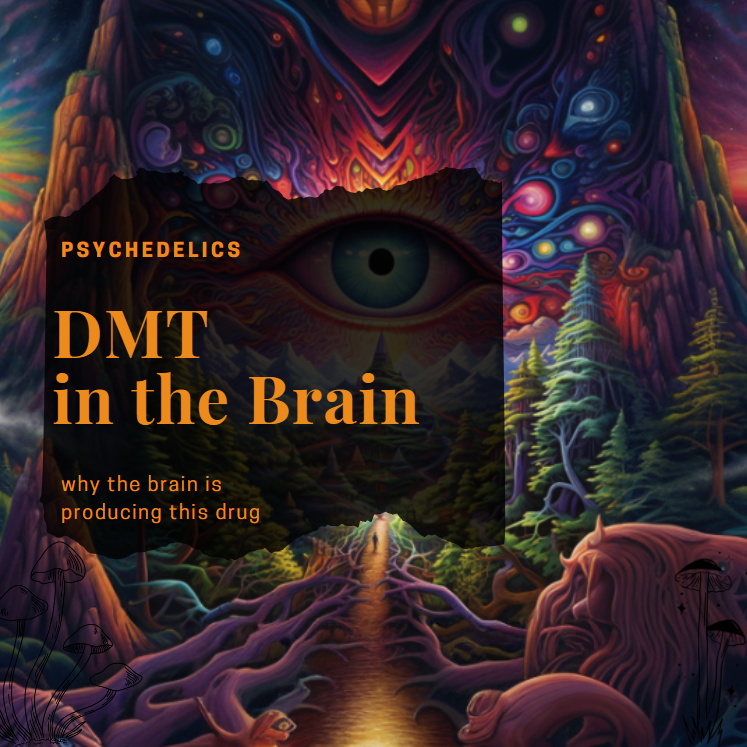And why does the brain produce this drug?

Dimethyltryptamine (DMT) is a naturally occurring substance that is present in humans, plants and animals.
Studies have shown that the rat brain contains DMT and that its concentration increases after cardiac arrest.
Could this mean that these lab rats have had near-death experiences? More questions than answers!
Some researchers hypothesize that DMT may act as a neurotransmitter or neuromodulator, meaning that it may play a role in transmitting signals between neurons in the brain and affecting their activity.
Some theories link DMT to dreaming processes and astral travel. According to this hypothesis, DMT may play a key role in the formation and regulation of dreams, possibly enabling the transformation of consciousness and the transition to states of higher consciousness during dreams.
DMT ingestion can also induce a wide range of emotional experiences, including euphoria, bliss, wonder, fear, anxiety, or even panic. These emotional experiences can be very intense and volatile. Consciousness under the influence of the substance can transport to other realities and out-of-body experiences.
It is important to remember that DMT use should take place in a controlled and safe environment, and preferably under the supervision of an experienced and caring guide or companion.
